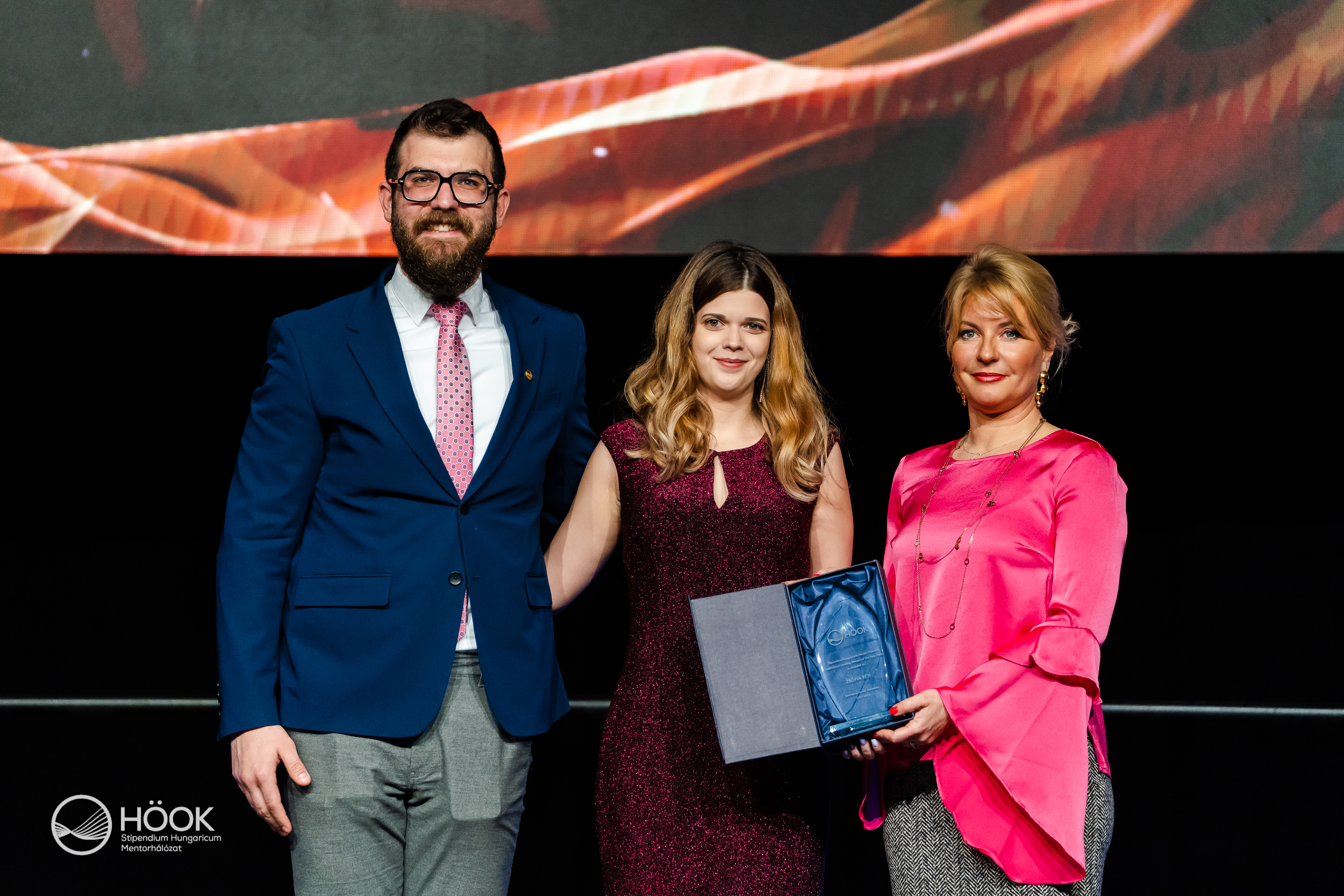Internationalisation: SZE student named “leading institutional mentor of the year”

The Stipendium Hungaricum Scholarship Programme, established by the Ministry of Foreign Affairs and Trade, brings students from all over the world to Hungary. To help them find their way around, the National Conference of Student Unions set up the Stipendium Hungaricum Mentor Network, which also operates at Széchenyi István University.
"The organisation was set up in Győr in academic year 2019-20, and I have been the local leader of the mentors since then, that is for the third year. I am honoured that my work has been found worthy of such prestigious recognition." said Zsófia Réti, who graduated from Széchenyi University with a degree in judicial administration and is currently in her second year of a law degree. At the annual Stipendium Hungaricum banquet, the network's Győr-based leader received the title of "Leading Institutional Mentor of the Year" from Orsolya Pacsay-Tomassich, Secretary of State for the Hungarian Diplomatic Academy and the Stipendium Hungaricum Programme at the Ministry of Foreign Affairs and Trade and László Murai, President of the National Union of Students.
Zsófia Réti (centre) received the award from László Murai and Orsolya Pacsay-Tomassich. (Photo: National Union of Students Stipendium Hungaricum Mentor Network)
"The primary task of mentors is to help foreign students in the early stages with administrative matters such as obtaining a residence permit, a health insurance card (TAJ), a student card, etc. They are also available whenever the mentees need them, for example because of language barriers. We help them to find their way around, to use public transport, or to find the institutions and shops that are important to them." Said Ms Réti, listing the tasks of the mentors.
She added that the other main activity of the organisation is to organise programmes that enable young people to build relationships and learn about each other's cultures. During the epidemic period, there were fewer opportunities to do this, but this year they have already had a successful quiz. Through these programmes, strong international friendships are often forged.
International students coming to Széchenyi University can evaluate their mentors through an online interface, which shows that they are satisfied with them. Mentors are needed every year, and the HÖOK Scholarship Mentor Network will announce the opportunity to apply in the spring.
"Once the application period has closed, we will select suitable candidates who will have to undergo a language interview, but we will also assess their problem-solving skills and the knowledge they need to be of real help to students from abroad. In the summer, they will attend a mentoring camp, after which they can get in contact with their mentees. If you would like to get involved in the programme as a mentor, please keep an eye on the Stipendium Hungaricum Mentor Network community pages in April and May, as we are advertising for applications again this year," Ms Réti advised.
The strategic goal of Széchenyi István University is to increase its global visibility. The internationalisation process started in 2016 with the Stipendium Hungaricum higher education scholarship programme, and from 2018 it has been further strengthened by the admission of self-financed students. The student community is now made up of young people from 65 nations, with the number of international students increasing by 30 percent this academic year alone, to almost 800. The University attaches great importance not only to providing them with a European quality education and environment, but also to helping them integrate and feel at home here in Hungary as well as to familiarising them with Hungarian culture.











